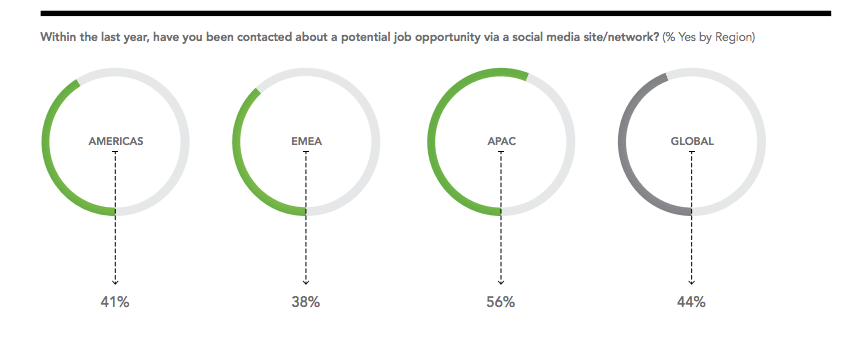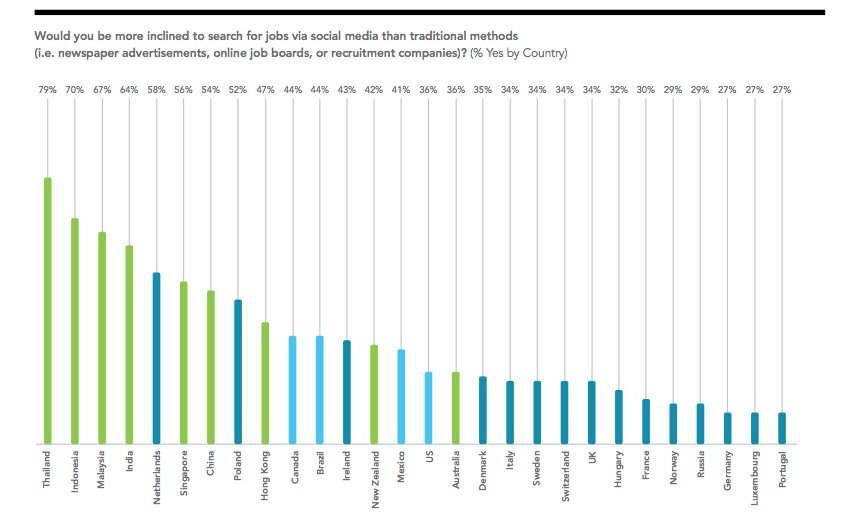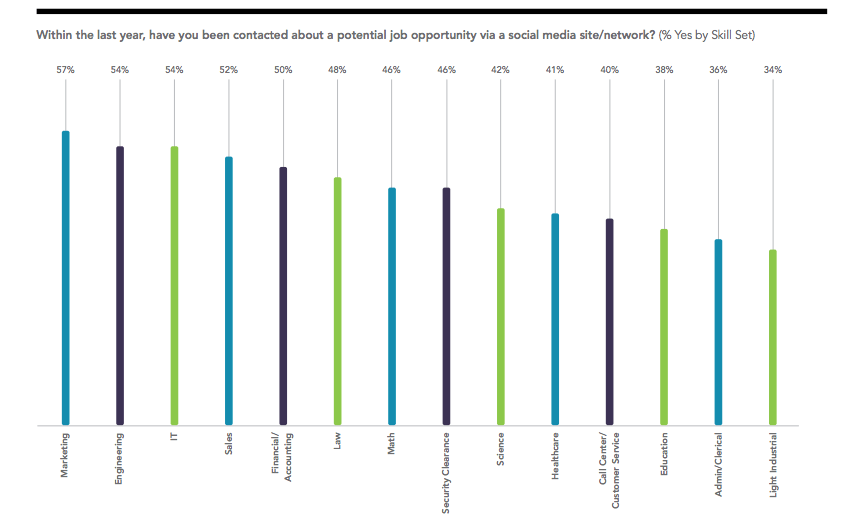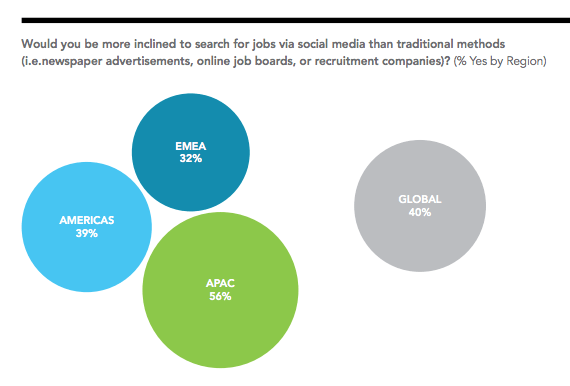How Social Media Affected Recruitment in 2013 - Kelly Services 2013 Global Workforce Index Results

How has Social Media Affected Candidates?
In the last 12 months alone, 44% of respondents said they had been contacted about a job opportunity via social media. 2013 has also seen the vast majority of jobs being advertised through social media, and not just job boards.

16% of global respondents said they had secured a job opportunity through social media, but this was as high as 25% in the Asia-Pacific region with 79% of people from Thailand alone saying they would be more inclined to search for jobs via social media versus 43% of Irish people and just 34% of those in the UK.

Interestingly, the push towards increased social interaction on the job search front isn’t being spearheaded by just one age demographic. Each generation is playing their own significant part in this phenomenon. Generation X (those born between 1965 and 1979) are leading the pack of social job hunters and recruiters with 47% receiving job information via social media networks. 42% of Baby Boomers (those born between1946-1964) and Generation Y AKA the Millenials (those born between 1980 to 2000) have been approached through Social Media about a job in the last year.
Job decisions are no longer made in isolation. Candidates can now find more information on jobs and employers in a variety of different online spaces. More than a third of those surveyed globally use social media when making employment decisions whether it be sharing a job spec with friends online or checking out an employers/recruiters social profiles. Many factors contribute to a candidate’s decision-making process when it comes to applying for and accepting jobs , including referrals, social media presence and employer brand.
What Does this Mean for Recruiters?
In a nutshell, social media has permanently affected our recruitment techniques. Never before have candidates been more willing to share information about themselves and their views online and never before have we been able to engage and contact them in so many different and relevant ways.
In the past, we were restricted to a small pool of candidates limited to the amount of individual people we could contact in a day by phone or by email. Now with just the click of a button we can have our job ads seen by hundreds if not thousands of people instantly with a simple tweet or Facebook post.
As people continue to share jobs freely amongst friends and colleagues, people are sending job opportunities to their peers who they think are perfectly suited to the job. It has never been more important to get your ads out there in front of the right people. However, as candidates can easily easily seek out your company online, and information about your company is more easily shared amongst friends, your employer branding efforts will need to be strong. It is now imperative for recruiters to have a strong, credible presence across a variety of social sites if they are to attract the right candidates.
Candidates are becoming more picky. If they are able to search for a variety of jobs in the same industry with a selection of different companies, they can afford to be choosey. They believe that if they keep searching the “perfect” job will come up. As a result, it is crucial to capture their attention and for you to be in the right place at the right time if you are to attract the right candidates, and to also be aware who with and where people share your job offerings.
In 2013, the most popular industries recruiters are using social media to recruit for are Marketing, Engineering and IT industries that are both professional and require a certain amount of technical competency. As a result, it is important for recruiters to know and understand where the best place to find these candidates is and how best to engage them.

If you are recruiting in Europe be sure to employ a good balance of social and traditional recruiting techniques. Less than half of the European population favour socla networks as a job search method. Recruiters within the EMEA region will need to be more all-rounders if they are to be successful when attracting canddiates. In the other hand, if you are sourcing within the Asia-Pacific region it is advisable to increase your social recruiting techniques as almost 60% of the population surveyed said they would be much more inclined to search for jobs via social media.

View the full Global Report from Kelly Services here.
How do they results reflect your 2013 recruitment methods and techniques? let us know in the comments below.
